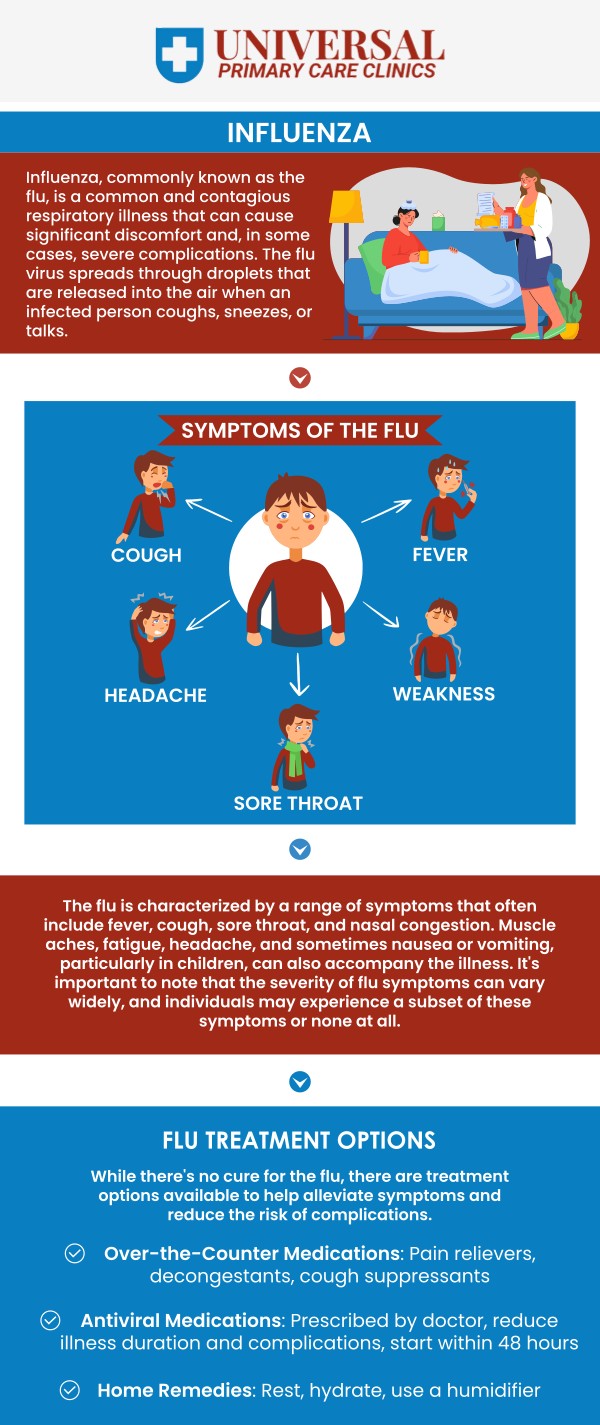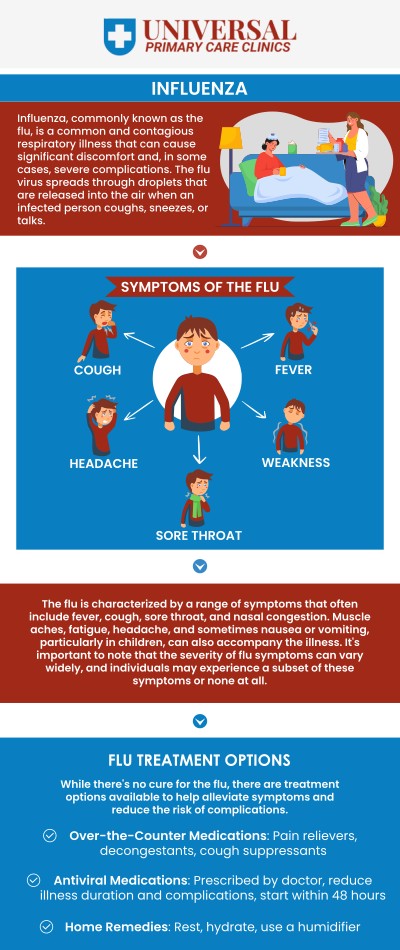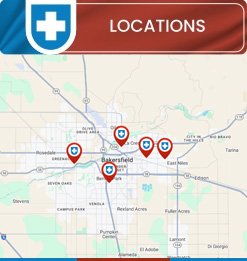Influenza A Symptoms: What You Need to Know
At Universal Primary Care, our team is here to help you understand the symptoms of Influenza A and how to manage them effectively. Influenza A can cause fever, chills, body aches, fatigue, cough, and sore throat, often appearing suddenly and lasting several days. Early detection is key to preventing complications, especially for young children, older adults, and individuals with weakened immune systems. For more information, contact us or book an appointment online. We have convenient locations at Brimhall Primary Care Center, Ming Primary Care Clinic, Niles Primary Care Clinic, Universal Q-Street Primary Care, and Niles Family Medicine in Bakersfield, CA.


Check Out Our 5 Star Reviews



Additional Services You May Need
▸ Annual Physical Exam
▸ COVID-19 Testing
▸ Chronic Disease Management
▸ Vaccinations
▸ STD Testing
▸ Primary Care
▸ Influenza (Flu)
▸ Common Cold
▸ Asthma
▸ Medical Weight Loss
▸ Diabetes
▸ School Physicals Exam
▸ Sports Physicals
▸ EKG
▸ Geriatric Care
▸ View All Services


